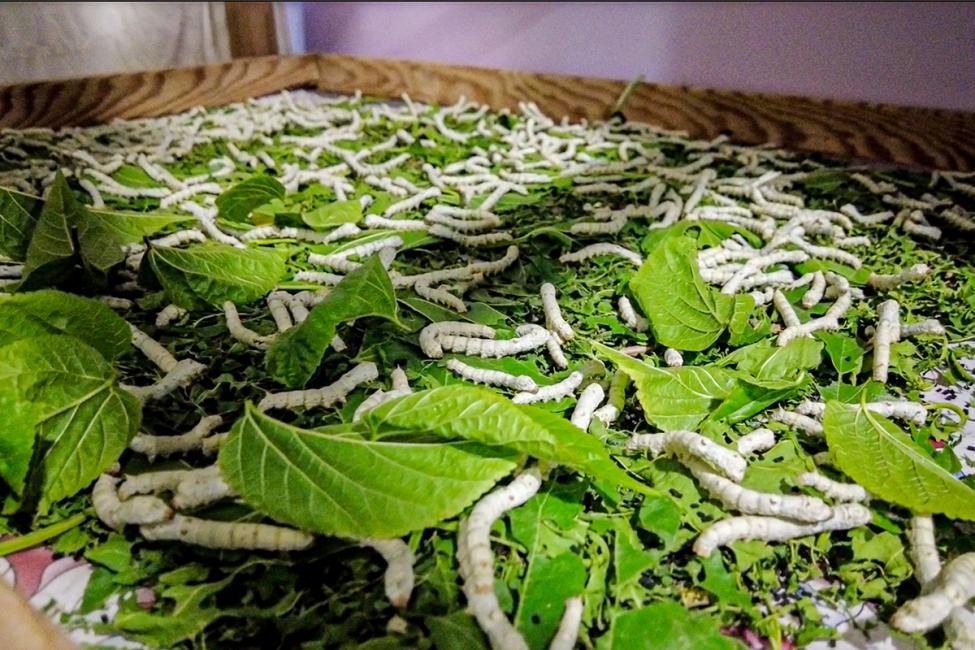-
Who We Are
WHO WE AREThe International Organization for Migration (IOM) is part of the United Nations System as the leading inter-governmental organization promoting humane and orderly migration for the benefit of all. IOM has had a presence in Türkiye since 1991.
About
About
IOM Global
IOM Global
-
Our Work
Our WorkAs the leading inter-governmental organization promoting since 1951 humane and orderly migration, IOM plays a key role to support the achievement of the 2030 Agenda through different areas of intervention that connect both humanitarian assistance and sustainable development. Across Türkiye, IOM addresses the full scope of migration issues, supporting and developing government capacity to manage migration.
Cross-cutting (Global)
Cross-cutting (Global)
- Data and Resources
- Take Action
- 2030 Agenda
Hatay - In the wake of the recent earthquakes that rocked Türkiye and Syria, one woman stands as a beacon of strength and determination. Emel, the proprietor of the largest silkworm breeding farm in the country, specializing in the production of “peace silk” – silk that is produced without harming the silkworms – remains resolute despite the devastation her community has endured.
Tragedy struck Emel's world when the earthquakes claimed the lives of her cousin and nephew, along with over 50,000 others, leaving behind a shattered community and a fractured foundation for her business. Undeterred, Emel's unwavering resilience and dedication continue to drive her forward.
“I knew I had to be stronger to help my community. That's how we kept working. We maintain constant communication with our employees, striving to bring them back to work,” she explains.
Emel's journey in silk design began in 1996 when she discovered her true calling. By 2000, her passion had evolved into the establishment of her own company. In 2019, she co-founded the EkuDoku Cooperative, joining forces with like-minded women who shared her vision for ethical and sustainable silk production, utilizing cruelty-free harvesting methods passed down through generations.
The impact of the earthquakes was starkly visible upon Emel's return to the city from her mountain house. She was confronted with the harsh reality of the disaster: countless lives lost, homes destroyed, and worsening conditions exacerbated by inclement weather.
“I received a call from one of our Syrian employees whose home had collapsed. After that, I tried to reach all of my employees,” she recalls. The facility that once hummed with productivity transformed into a shelter for displaced workers, their families, and others who had lost their homes. Balancing her own company responsibilities and her role as branch manager at the cooperative, Emel has become a role model for aspiring women entrepreneurs in her community.
However, Emel's path to success has not been without challenges. As a female business owner, she faced gender-based discrimination and discouraging remarks questioning her potential for success. Undeterred, Emel persevered, dismissing negativity, conducting thorough research, and securing essential funding. She surpassed expectations, achieving her goals against all odds.
The earthquake presented Emel with her most formidable challenge to date. Only three out of the 30 female employees were able to return to work. The disaster had struck at the heart of the cooperative, damaging 90 per cent of their tools, equipment, and the silkworm habitat. “The idea of returning to work was very difficult, and I shed many tears during that first week,” says Emel. “With so much death and pain around, how could I work?”
Determined to move forward nonetheless, Emel and the EcoDoku cooperative reached out to the International Organization for Migration (IOM) for assistance. IOM responded by providing a container that now serves as their new workspace.
Although the journey to rebuild and recover has only just begun, Emel and her team are filled with renewed motivation. “We can only rebuild and recover through production,” she affirms.
Emel firmly believes that the path to recovery and a stronger community lies in continued production, raising awareness, and attracting investment in this field. She emphasizes the importance of uniting women affected by the earthquakes, including migrants, involving them in the production process, and creating a safe environment that supports their emotional well-being while providing financial opportunities.
IOM, thanks to financial support from the U.S. Department of State's Bureau of Population, Refugees, and Migration (PRM), is assisting the earthquake-affected communities in Türkiye to rebuild their lives and facilitating their recovery.



